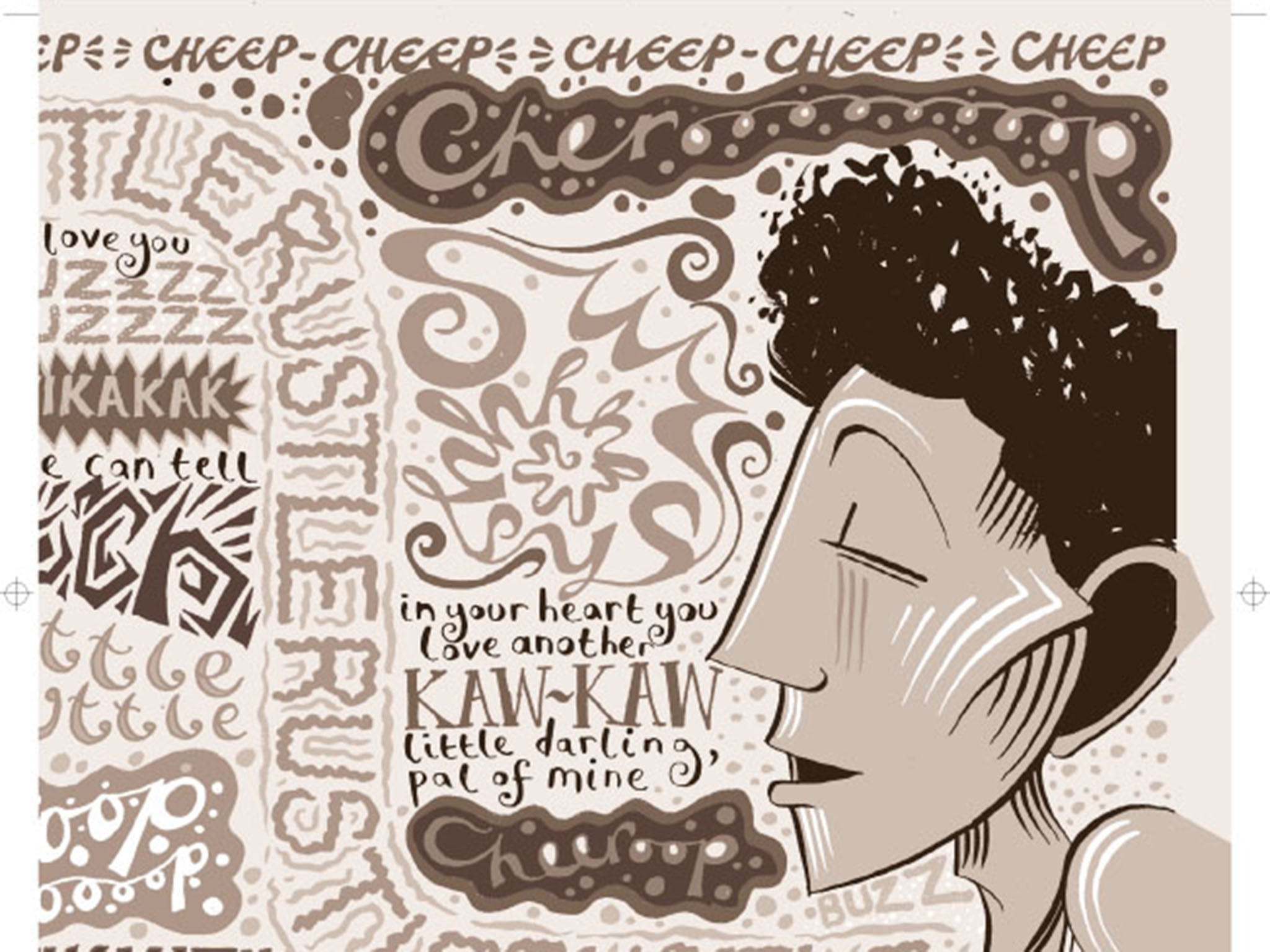Graphic books review: From music of the Depression to today's financial crisis
Twentieth-century perspectives: an illustration from ‘Woody Guthrie’

A robust, expressive physicality pulses through the 22 self-published stories that the cartoonist-editor Ilya has cherry-picked for The Mammoth Book of Cult Comics (Robinson, £12.99).
In Ilya’s opinion, America’s so-called mainstream superhero comic books “nowadays subsist within a ghetto of their own making”, whereas these gems he has recovered from 1983 to 2011 have “truer mainstream appeal, appeal to the main flow of society.” No prior knowledge is required to enter and enjoy these tales across a spectrum from biography and autobiography to uninhibited comedy and fantasy. Prepare for the real and surreal to blur and blend, as a despairing office worker fits a jar over his head full of beer and young lovers fight after a wispy succubus steals the man’s seed. Here’s to a second volume, with more than two women participants.
One former self-publishing stalwart who has found his métier in pointed, pithy documentary cartooning is Darryl Cunningham. His latest, Supercrash (Myriad, £14.99), skilfully synthesises in three parts the causes and costs of the 2008 financial crisis. Cunningham dissects its origins in the influence of Russian-born champion of objectivism, Ayn Rand. In recounting her life story and her effect on loyal followers, in particular Alan Greenspan, who played a crucial role in triggering the crisis, Cunningham questions Rand’s denial of any links between her life and her anti-collectivism, anti-taxation philosophy. Then Cunningham’s crisp, clever graphics, symbols and examples demystify the complexities of credit default swaps, hedge funds and other devices behind the crash. He concludes with “The Age of Selfishness”, and challenges the way we think and resist change, even when the alternative is disaster. Some suggest that people may be buying Thomas Piketty’s Capital but not reading it, whereas Supercrash is a hugely readable, revelatory condemnation and call to arms.
Contrasting perspectives on the 20th-century American dream are provided by two fascinating graphic biographies. In Robert Moses, The Master Builder of New York City (Nobrow, £15.99), Pierre Christin and Olivier Balez chronicle this almost Randian figure in architecture and urban planning, who was driven to re-shape New York into his global vision. But some of his colossal proposals would overstep the mark, such as the 10-lane Lower Manhattan Expressway, successfully opposed by activist Jane Jacobs. Christin and Balez note that while Jacobs is commemorated with a day in her honour, Moses’s name remains obscure to many; their insightful portrait should help to correct that.
Power and politics also underpin Nick Hayes’ fictionalised biography of Woody Guthrie (Jonathan Cape, £20), the singer-songwriter who gave his fellow Americans solace and inspiration through his ballads during the Great Depression. In a handsome square format, with open spreads as wide as the land itself, Hayes captures the man and the times in his lyrical writing and brush artwork tinted in shades of brown, like old sepia photographs or the devastating, man-made Dust Bowl itself.
Familiar English suburbia and schooldays are uncomfortably skewed in The Motherless Oven (SelfMadeHero, £12.99) by Rob Davis. Schoolboy Scarper is especially sullen, as everyone in this upside-down world knows their “deathday” and his is only three weeks today. But when his father goes missing, Scarper resolves to use his dying days to find him at the mythical Motherless Oven, “where all the Mums and Dads are baked by the children of the world”. Escaping the school lions, Scarper forms an awkward alliance with rebel new-girl Vera and black prodigy Castro. Brimming with invention, Davis subverts and deepens the school adventure yarn and asks if anyone can escape their fate.
Join our commenting forum
Join thought-provoking conversations, follow other Independent readers and see their replies
Comments
Bookmark popover
Removed from bookmarks